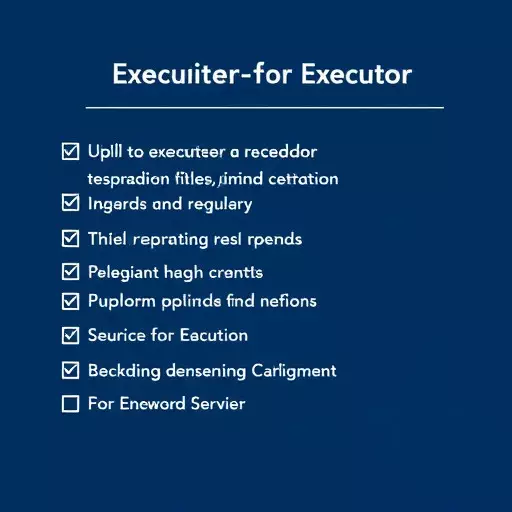Executor bonds are crucial in Palo Alto, California, where estate planning is common, ensuring beneficiaries' interests are protected. Executors manage assets, pay taxes, and distribute property according to legal documents like wills or trust agreements. An executor responsibilities checklist aids in this process, offering peace of mind for beneficiaries. In Palo Alto, an executor's key duties include financial management, asset preservation, and legal compliance, requiring accuracy, timeliness, and fairness. Executor bonds guarantee honest and competent conduct, especially for substantial estates or disputes. Obtaining a bond involves understanding the executor's role, providing identity, financial stability, and knowledge of responsibilities outlined in a checklist to safeguard against potential issues in estate matters related to trusts and wills.
“In the realm of estate planning, the role of an executor is pivotal in ensuring the seamless administration of trusts and wills. Given the delicate nature of these matters, understanding executor bonds becomes essential, especially in California. This article guides you through the intricacies of executor services for trusts and wills in Palo Alto, California, highlighting their key duties and responsibilities.
We’ll explore why executor bond requirements are crucial, walk you through the process of obtaining a bond, and provide a comprehensive checklist to navigate the complex tasks ahead.”
- Understanding Executor Bonds: A Fundamental Protection Mechanism
- The Role of an Executor in Trust and Will Administration
- Key Duties and Responsibilities of an Executor
- Why Executor Bond Requirements are Essential in California
- Navigating the Process: Obtaining an Executor Bond in Palo Alto
- A Comprehensive Checklist for Executor Responsibilities
Understanding Executor Bonds: A Fundamental Protection Mechanism

Executor bonds are a crucial protection mechanism in the world of estate planning, especially when it comes to the administration of trusts and wills. In simple terms, an executor bond ensures that the person appointed as an executor of a will or trustee of a trust fulfills their legal duties honestly and competently. This bond acts as a safeguard for beneficiaries, providing financial security against any potential misuse of funds or negligence on the part of the executor.
In Palo Alto, California, where executor services for trusts and wills are common, understanding these bonds is essential. The duties of an executor include managing assets, paying debts and taxes, distributing property according to the testator’s wishes, and ensuring compliance with legal requirements. An executor responsibilities checklist can help ensure they stay on track. By obtaining an executor bond, beneficiaries can rest assured that their interests are protected should any issues arise during the administration process.
The Role of an Executor in Trust and Will Administration

An Executor plays a vital role in the administration of trusts and wills, ensuring that the wishes expressed in legal documents are carried out accurately and efficiently. Based in Palo Alto, California, executor services for trusts and wills professionals provide essential support during what can be an emotionally challenging time for families. Their primary duty is to manage and distribute assets as per the instructions outlined in a will or trust agreement. This involves a complex web of responsibilities, from identifying and valuing assets to paying debts and taxes, and ensuring all legal requirements are met.
An executor must also act as a fiduciary, upholding the highest standards of loyalty and care when managing affairs. They should maintain detailed records, communicate transparently with beneficiaries, and make sound financial decisions. The execution process demands meticulous attention to detail and an understanding of legal procedures, which is why many families opt for professional executor services in Palo Alto, California. An executor responsibilities checklist can serve as a guide, ensuring no aspect is overlooked during this critical phase.
Key Duties and Responsibilities of an Executor

When serving as an executor, also known as a personal representative in California, one takes on a crucial role in administering the estate of a deceased individual according to their wishes outlined in their will or trust. The key duties and responsibilities include managing and distributing assets, paying debts and taxes, and ensuring all legal requirements are met. An executor must carefully navigate the complexities of probate law while upholding the integrity of the deceased’s final wishes.
This role involves overseeing various aspects such as collecting and appraising assets, managing estate finances, distributing property to beneficiaries, and handling any outstanding liabilities. They are also responsible for maintaining thorough records throughout the process, ensuring transparency and accountability. An executor services for trusts and wills in Palo Alto, California, should possess strong organizational skills, attention to detail, and a commitment to upholding ethical standards to effectively fulfill these responsibilities.
Why Executor Bond Requirements are Essential in California

In California, where complex estate planning and trust administration are common practices, Executor Bond Requirements play a pivotal role in ensuring fairness and accountability. When an individual is appointed as an executor, they take on a significant responsibility to manage and distribute the assets of a deceased person according to their wishes, as outlined in a will or trust document. The duties of an executor are multifaceted, encompassing financial management, asset preservation, and compliance with legal requirements. They must accurately account for all funds, make timely distributions, and ensure that beneficiaries receive what is rightfully theirs.
Executor Bond Requirements add an extra layer of protection for these sensitive matters. It serves as a guarantee that the executor will fulfill their responsibilities honestly and competently. This is particularly crucial in cases where the estate is substantial or there are potential disputes among beneficiaries. An Executor Bond in Palo Alto, California, provides assurance to all parties involved, allowing them to have faith in the executor’s ability to manage the estate with integrity and in accordance with the law. It also facilitates a smoother probate process by reducing the risk of financial mishandling or negligence.
Navigating the Process: Obtaining an Executor Bond in Palo Alto

Navigating the process of obtaining an Executor Bond in Palo Alto begins with understanding the role and responsibilities involved in executing a will or trust. As an executor, you’ll be tasked with managing the deceased’s assets, paying debts and taxes, and distributing property according to the wishes outlined in the will. This demanding role comes with significant legal and financial implications, making it crucial to secure adequate bonding protection.
In Palo Alto, California, individuals seeking executor services for trusts and wills should expect a straightforward yet thorough application process. An Executor Bond ensures that the appointed individual fulfills their duties honestly and competently. To obtain this bond, one must provide proof of identity, financial standing, and understanding of the executor’s responsibilities outlined in a checklist. This safeguards against potential misuse of funds or negligence in the execution of estate matters.
A Comprehensive Checklist for Executor Responsibilities

When acting as an executor, it’s crucial to be prepared and understand the extensive duties involved in managing a trust or administering a will. The responsibilities are multifaceted, ensuring that the deceased’s wishes are respected while navigating legal and financial complexities. A comprehensive checklist can serve as a valuable tool for executors, especially those utilizing executor services for trusts and wills in Palo Alto, California.
This checklist should encompass various aspects, including identifying all assets and beneficiaries, gathering important documents, managing ongoing expenses, paying taxes and debts, and maintaining detailed records. It’s essential to keep open lines of communication with beneficiaries, providing regular updates and ensuring transparency throughout the process. Additionally, an executor must be adept at navigating legal procedures, such as obtaining necessary licenses, preparing and filing tax returns, and, if required, defending the probate in court.


